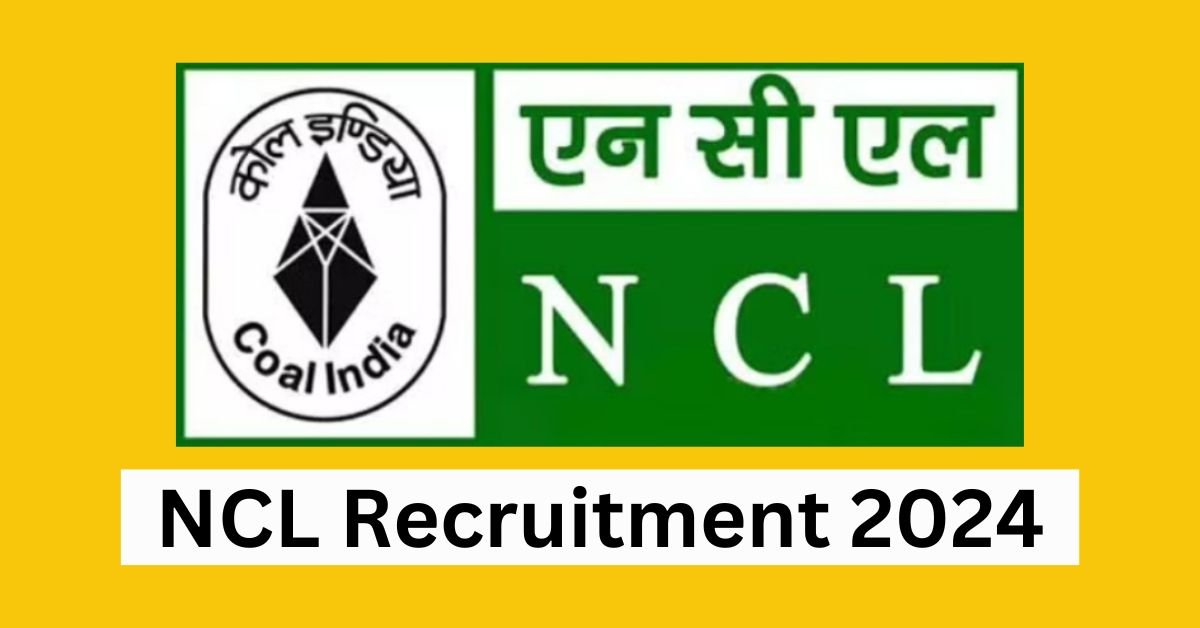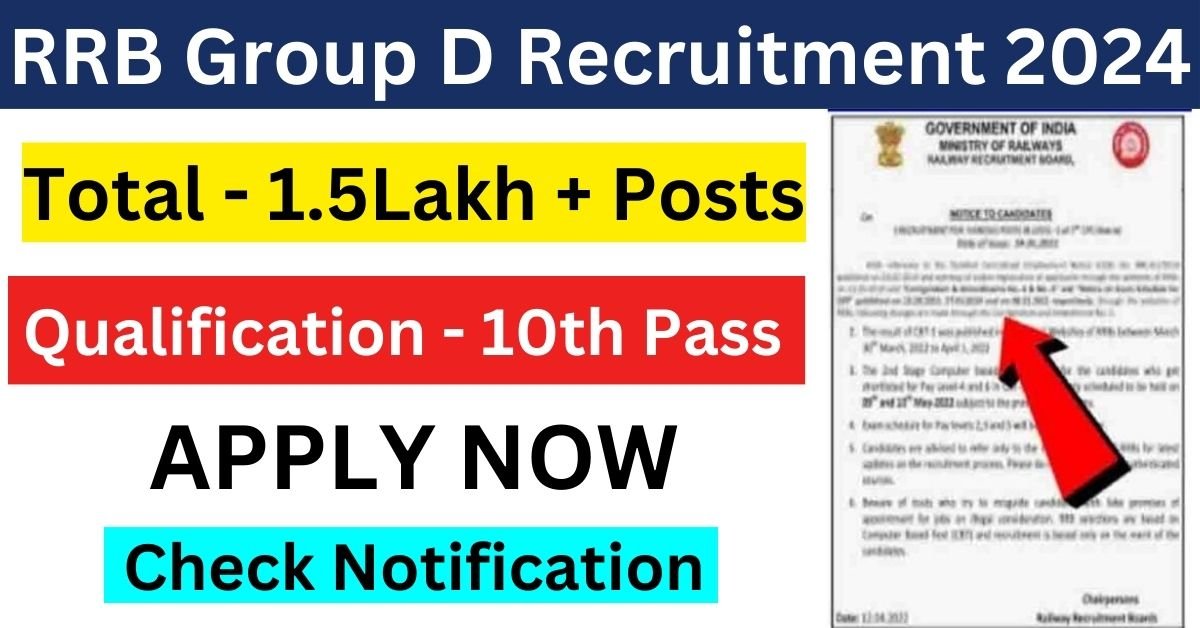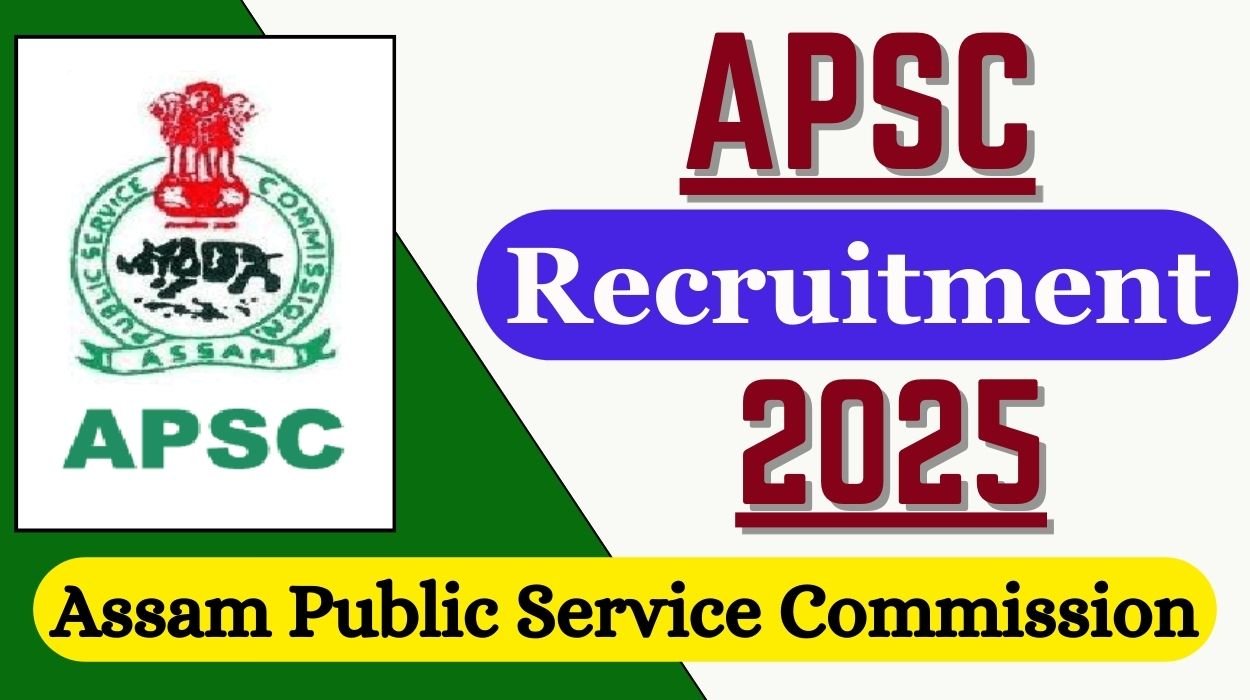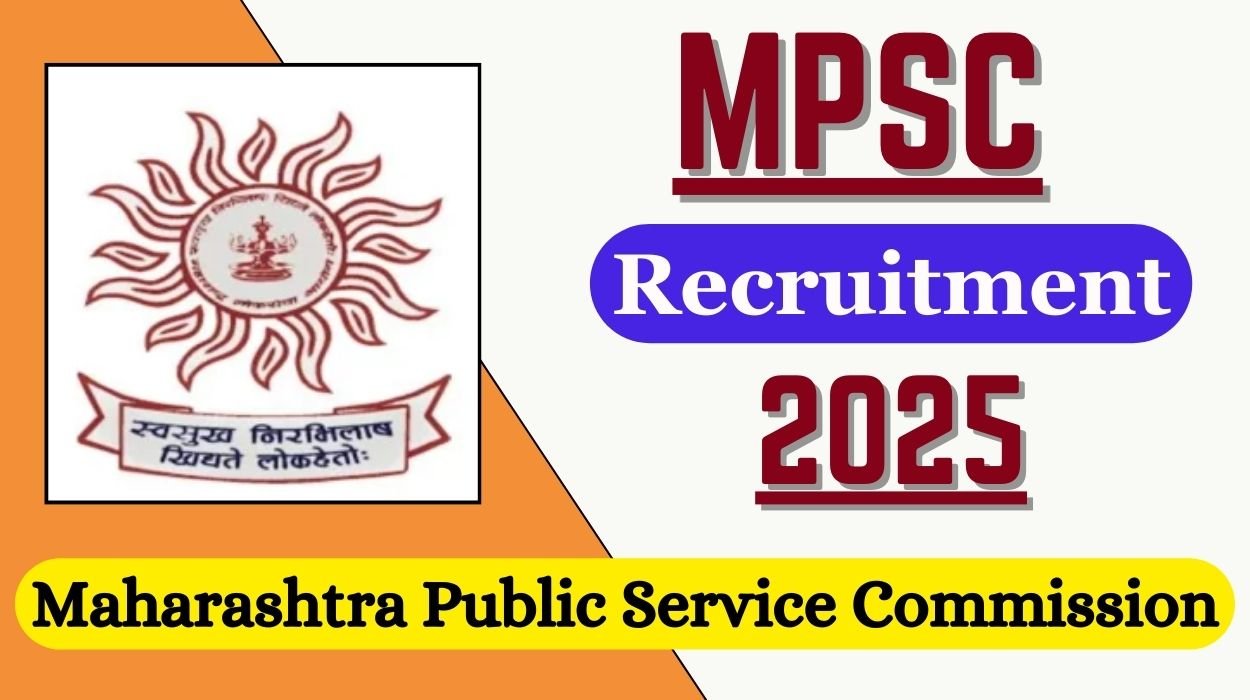NCL Recruitment 2024 – Northern Coalfields Ltd (NCL) has recently issued a new vacancy notification, if you want to do a job in Assistant Foreman Post Recruitment 2024, then read this post carefully and you can apply easily through the apply link. candidates can apply before 05 February 2024.
The eligible candidates can apply online for the Northern Coalfields Limited (NCL) Assistant Foreman Vacancy 2024 from the website nclcil.in or from the direct link given below.
NCL Recruitment 2024 Overview
| Organization Name | Northern Coalfields Limited (NCL) |
| Post Name | Assistant Foreman |
| Vacancies | 150 |
| Salary in Rs. | 47330.25/- per month |
| Job Location | Pan India |
| Last Date | 05 February 2024 |
| Apply Mode | Online |
| Official Website | nclcil.in |
Important Date
Start Date -: 15 January 2024
Last Date -: 5 February 2024
| Notification Release Date | 9 January, 2024 |
| Application Start Date | 15 January, 2024 |
| Application End Date | 5 February, 2024 |
Educational Qualification
Candidates are required to have an Engineering Degree/ Diploma in Electronics/ Mechanical/ Electrical Engineering to apply for NCL Recruitment.
| Posts | Qualification |
| Assistant Foreman (E&T) | Candidates must have a Matriculate or equivalent examination passed from any recognized Board of Examination and Diploma or relevant and higher qualification with a minimum 3-year course in Electronics Engineering from any institute recognized by the Government. |
| Assistant Foreman (Mechanical) | Candidates must have a Matriculate or equivalent examination passed from any recognized Board of Examination and a Diploma or relevant and higher qualification with a minimum 3-year in Mechanical Engineering from any institute recognized by the Government. |
| Assistant Foreman (Electrical) | Candidates must have a Matriculate or equivalent examination passed from any recognized Board of examination and Diploma or relevant and higher qualification with a minimum 3-year in Electrical Engineering from any institute recognized by the Government. |

NCL Recruitment 2024 Vacancy Details –
| Post Name | Number of Posts |
|---|---|
| Assistant Foreman (E&T) (Trainee) | 9 |
| Assistant Foreman (Mechanical) | 59 |
| Assistant Foreman (Electrical) | 48 |
| Electrical & Mechanical (E&M) | 34 |
| Total | 150 |
Salary Structure
Monthly basic salary of Rs. 47,330.25. Alongside this basic pay, they are entitled to a range of benefits including Dearness Allowance (DA), attendance bonus, special allowance, House Rent Allowance (HRA), transport subsidy, and medical facilities, in accordance with the stipulations of NCWA XI.
Selection Process
- Computer-Based Test (CBT)
- Document Verification
- Medical Examination
Age Limit
- Minimum Age – 18 Year
- Maximum Age – 30 years
As per given rule and Regulation.
Application Fees
You will have to deposit some amount at the time of filling the application form
| Category | Application Fee (INR) | GST (INR) | Total Fee (INR) |
|---|---|---|---|
| Unreserved (UR) / OBC- Non Creamy Layer / EWS | 1000.00 | 180.00 | 1180.00 |
| SC/ ST/ ESM / PwBD/ Departmental Candidates | Nil | N/A | Nil (No Application Fee) |
How to Apply
Mode – Online
You can use the online medium to apply for this post.
To apply, first go to the official website www.nclcil.in
At the top you will see a button of NCL Recruitment 2024 NCL Notification which has to be clicked
An application form will appear in front of you from which you have to fill fill your personal details and register
After filling the form, pay the application fee through online mode and click on the submit button.
Take a print out of the failed application form which will be useful for future use.
In this way you can easily fill up the form.
NCL Recruitment 2024
| NCL Assistant Foreman Exam Pattern 2024 | |||
| Part | Subject | No. of Questions | Duration |
| Section ‘A’ | Technical Knowledge (Discipline Related) | 70 | 90 Minutes |
| Section ‘B’ | General Knowledge, General Awareness, Reasoning, Verbal & Mental Ability and Quantitative Aptitude. | 30 | |
| Total | 100 | ||
NCL Syllabus 2024 for Mechanical Engineering
| Theory of Machines and Machine Design | Theory of Machines and Machine Design Concept of simple machine, Four bar linkage and link motion, Flywheels and fluctuation of energy, Power transmission by belts V-belts and Flat belts, Clutches – Plate and Conical clutch, Gears – Type of gears, gear profile and gear ratio calculation, Governors – Principles and classification, Riveted joint, Cams, Bearings, Friction in collars and pivots. |
| Engineering Mechanics and Strength of Materials | Equilibrium of Forces, Law of motion, Friction, Concepts of stress and strain, Elastic limit and elastic constants, Bending moments and shear force diagram, Stress in composite bars, Torsion of circular shafts, Bucking of columns – Euler’s and Rankin’s theories, Thin walled pressure vessels. |
| Thermal Engineering Properties of Pure Substances | P-V & P-T diagrams of pure substance like H2O, Introduction of steam table concerning steam generation process; definition of saturation, wet & superheated status. Definition of dryness fraction of steam, degree of superheat of steam. H-s chart of steam (Mollier’s Chart). 1st Law of Thermodynamics: Definition of stored energy & internal energy, 1st Law of Thermodynamics of cyclic process, Non Flow Energy Equation, Flow Energy & Definition of Enthalpy, Conditions for Steady State Steady Flow; Steady State Steady Flow Energy Equation. 2nd Law of Thermodynamics: Definition of Sink, Source Reservoir of Heat, Heat Engine, Heat Pump & Refrigerator; Thermal Efficiency of Heat Engines & co-efficient of performance of Refrigerators, Kelvin Planck & Clausius Statements of 2nd Law of Thermodynamics, Absolute or Thermodynamic Scale of temperature, Clausius Integral, Entropy, Entropy change calculation of ideal gas processes. Carnot Cycle & Carnot Efficiency, PMM-2; definition & its impossibility. |
| Air standard Cycles for IC Engines | Otto cycle; plot on P-V, T-S Planes; Thermal Efficiency. Diesel Cycle; Plot on P-V, T-S planes; Thermal efficiency. IC Engine Performance, IC Engine Combustion, IC Engine Cooling & Lubrication. Rankine cycle of steam: Simple Rankine cycle plot on P-V, T-S, h-s planes, Rankine cycle efficiency with & without pump work. |
| Boilers | Boilers; Classification; Specification; Fittings & Accessories : Fire Tube & Water Tube Boilers. Air Compressors & their cycles; Refrigeration cycles; Principle of a Refrigeraton Plant; Nozzles & Steam Turbines. |
| Fluid Mechanics & Machinery Properties & Classification of Fluid | Ideal & real fluids, Newton’s law of viscosity, Newtonian and Non-Newtonian fluids, compressible and incompressible fluids. Fluid Statics Pressure at a point. Measurement of Fluid Pressure: Manometers, U-tube, Inclined tube. Fluid Kinematics: Stream line, laminar & turbulent. flow, external & internal flow, and continuity equation. Dynamics of ideal fluids: Bernoulli’s equation, Total head; Velocity head; Pressure head; Application of Bernoulli’s equitation. Measurement of Flow rate Basic Principles: Venturimeter, Pilot tube, Orifice meter. Hydraulic Turbines Classifications, Principles. Centrifugal Pumps Classifications, Principles, Performance. |
| Foundry & Casting methods, defects, different casting processes, Forging, Extrusion, etc., Metal cutting principles, cutting tools, Basic Principles of machining with (i) Lathe (ii) Milling (iii) Drilling (iv) Shaping (v) Grinding, Machines, tools & manufacturing processes, etc. as per the courses offered by the Recognized Institutes. |
NCL Syllabus 2024 for Electrical Engineering
- Principles of Electricity – Electric voltage, Current and resistance, Ohm’s law – specific resistance, Laws of resistance and their application for calculating voltage drop, series and parallel circuits, Practical units of voltage, current, resistance, power and energy. Relation between electrical power unit (KW) and Mechanical Power Units (HP).
- Electro Magnetism – Concept of Electro Magnetic Force (EMF), production of E.M.F., Flemings Right and Left Hand Rules, Magnetic, Chemical and heating effects of electric current. Magnetic properties of material, Electromagnets and their various applications.
- Materials – Conductors, Semiconductors and insulator materials and their relative merits. Transformer oil, Effect of heat and moisture on insulation. Lubricants and their uses. Different types of wires, cables, switches, circuit breakers, cutouts, etc.
- Generation of Electricity – Sources of natural energy. Renewable and Non-Renewable source methods of production of electricity both Alternating Current and Direct Current.
- A.C. Generators (Alternators) – Essential components and constructional features. Methods of voltage and frequency control conditions and methods for synchronizing, simply associated switchboard and its accessories.
- D.C. Generators – Essential components and constructional features, Shunt, series and compound dynamos and their characteristics, causes for sparking. Commutators and their maintenance. Carbon brushes, their adjustment and care. Methods of voltage regulation. Conditions for parallel operation, simple associated switch board and its accessories.
- Batteries – Primary cells, Dry cells, Lead acid cells, Nickel, Iron or Alkaline cells. Initial and subsequent charging of batteries. Charging circuits and their calculations. Series and parallel circuits. Maintenance of batteries. Use of Hydrometers.
- A.C. Motors – Theory of induction (squirrel cage and slip-ring type) synchronous and commutator motors, their uses, installation, method of starting, speed control and reversal of direction.
- D.C. Motors – Theory of series, shut and compound wound type motors, their uses, installation, method of starting, speed control and reversal of direction.
- A.C. Circuits – Knowledge of vectors. Phase and phase difference. Resistance, inductance and capacitance in an A.C Circuit. Periodicity or Frequency. Power and power factor. Single phase and three phase systems, star and delta connections, Phase Sequence.
- Controlling and Regulating Gear – Knowledge of various types of switches, circuit breakers, cutouts, starters, regulators and protective devices for both A.C. and D.C. motors and their wiring with the motors.
- Transformation – Knowledge of single phase and three-phase transformers, their construction, use and maintenance. Phasing out, parallel working, auto transformer, transformer tappings, temperature rise, instrument transformer.
Important Link -:
Notification link – Click Here
Apply Link – Click Here
Official Website – Click Here
Check More –
-
RRB Group D Recruitment 2024 – Application form, Vacancies, Eligibility Criteria – Apply For 103769 Posts
-
HAL Recruitment 2025 for 16 Technician Vacancies Apply online
-
APSC Recruitment 2025 for 45 Insurance Medical Officer Vacancies Apply online
-
MPSC Recruitment 2025 for 3587 Assistant Professor Post Apply Here




